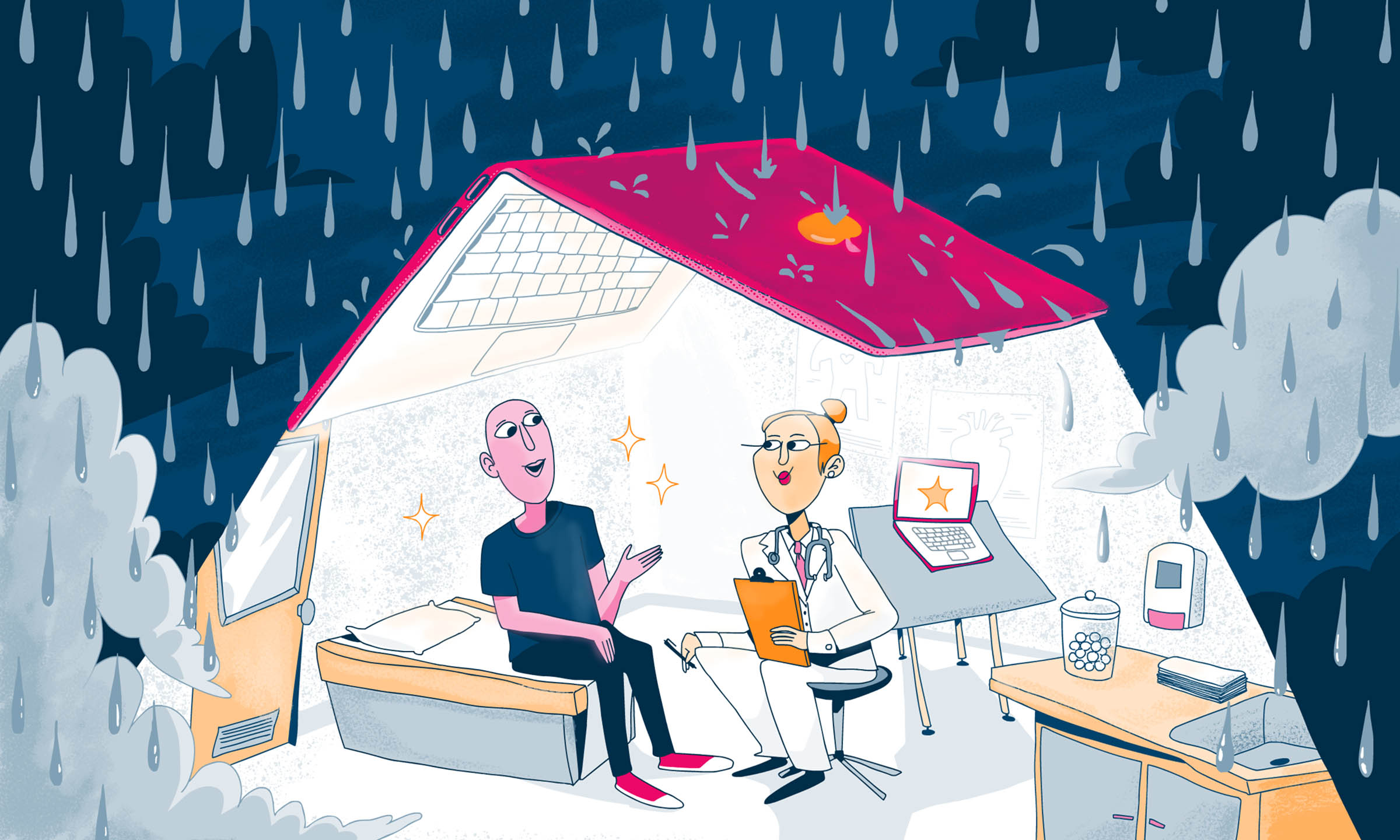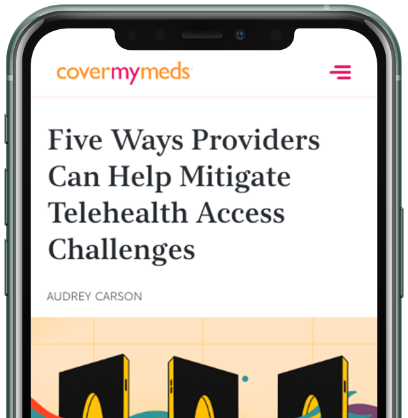Supporting Care Teams with the Technology They Need When It's Needed
With new data gathered from patients, providers and pharmacists during the peak of the COVID-19 pandemic, HIMSS21 attendees will learn about insights and solutions that answer the most pressing challenges nurses and care teams overcome when prescribing medications and specialized therapies for patients.

As patients’ primary contact on care teams, nurses are key to prescribing. Existing challenges to prescription access and affordability were exacerbated throughout 2020 as the COVID-19 pandemic drove increasing inequity in health disparities, record unemployment, which led to millions losing health coverage.
From the front lines, nurses saw it all, and played a pivotal role in our country’s response to the pandemic. And yet, there were times nurses reported strain from their unmet needs driven by incomplete pictures of patients. As one psychiatric nurse practitioner from Connecticut CoverMyMeds Medication Access Report, 2021shared in a recent survey:
“There are still so many unmet needs in the healthcare arena as it relates to understanding, access to care and to treatment and compliance that have yet to be addressed.”
But though the challenges patients and care teams must overcome in accessing and adhering to prescriptions is extensive, solutions are here.
Tracy Russell, senior director of state and government affairs for CoverMyMeds, will present “Utilizing Technology to Improve Medication Access Barriers” at 10:30 am (PST) on Friday, Aug. 13 at the 2021 HIMSS Global Health Conference and Exhibition. Her presentation will unpack key findings from CoverMyMeds’ 2021 Medication Access Report.
Having to go to multiple places just to find out what medications an insurance will cover is frustrating for professionals, so I can only imagine how frustrating it is for patients.
Arizona-based mail-order pharmacy technician
Nurses’ role in prescribing
Nurses are the trusted providers who spend the most time with patients, and such, their time is precious. Most nurses consider it their responsibility to be informed on the prior authorization requirements, drug sunsets, formulary changes, drug interactions and benefit details for each patient.[ref] (# "CoverMyMeds Nurses Survey, 2019")
“You have many that don’t understand their care, which brings nursing to a teaching moment,” said one urology nurse in Alabama.
Nurses’ commitment to fully informed prescribing ensures care teams have ready access to data that inform the best prescribing decisions based on each patient’s distinct health, financial and coverage circumstances. For care teams without access to a real-time prescription benefit (RTPB) solution, fully informed prescribing requires nurses to research across multiple data sources, platforms and organizations to find reliable information on behalf of their patients.
“Having to go to multiple places just to find out what medications an insurance will cover is frustrating for professionals, so I can only imagine how frustrating it is for patients,” said one mail-order pharmacy technician in Arizona.
Such complex administrative processes detract from valuable face-to-face interaction between nurses and patients. Physicians only spend 15 minutes on average with each patient, and 40 percent of all healthcare providers report not having time to discuss medications during their brief window of time with patients.CoverMyMeds Nurses Survey, 2019
As detailed in the CoverMyMeds 2021 Medication Access Report, “almost all nurses said they provide patient and medication information to prescribers,” with over half of those surveyed reporting a reliance on internet searches for the information.CoverMyMeds Medication Access Report, 2021
71% of nurses report dissatisfaction with the amount of time required of them to navigate patient insurance benefits and prescription access.
CoverMyMeds Nurses Survey, 2019
Strengthening care teams through technology
Even before the pandemic complicated the relationship between care providers and patients, 71 percent of nurses reported dissatisfaction with the amount of time required of them to navigate patient insurance benefits and prescription access.[ref] (# "CoverMyMeds Nurses Survey, 2019")
Given their critical role in point-of-prescribing interactions, no nurse should feel they’ve become a “ward clerk,” as one nurse described the experience.
The CoverMyMeds HIMSS21 presentation will identify technologies that simplify and automate the manual research process used by most nurses for fully informed prescribing. By simplifying and automating this process, research time improves and nurses can spend more valuable time interacting with patients.
Effective technology solutions restore nurses to their most important role as patient’s primary point of contact, helping improve the overall effectiveness of care teams and patients’ health outcomes.
To learn more about solving medication access challenges that work for nurses and care teams, set up a meeting with CoverMyMeds at HIMSS21.
The latest healthcare insights, floated right to your inbox.



